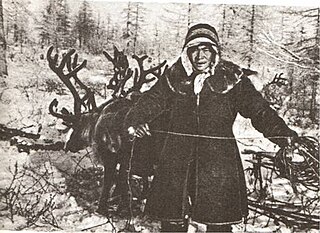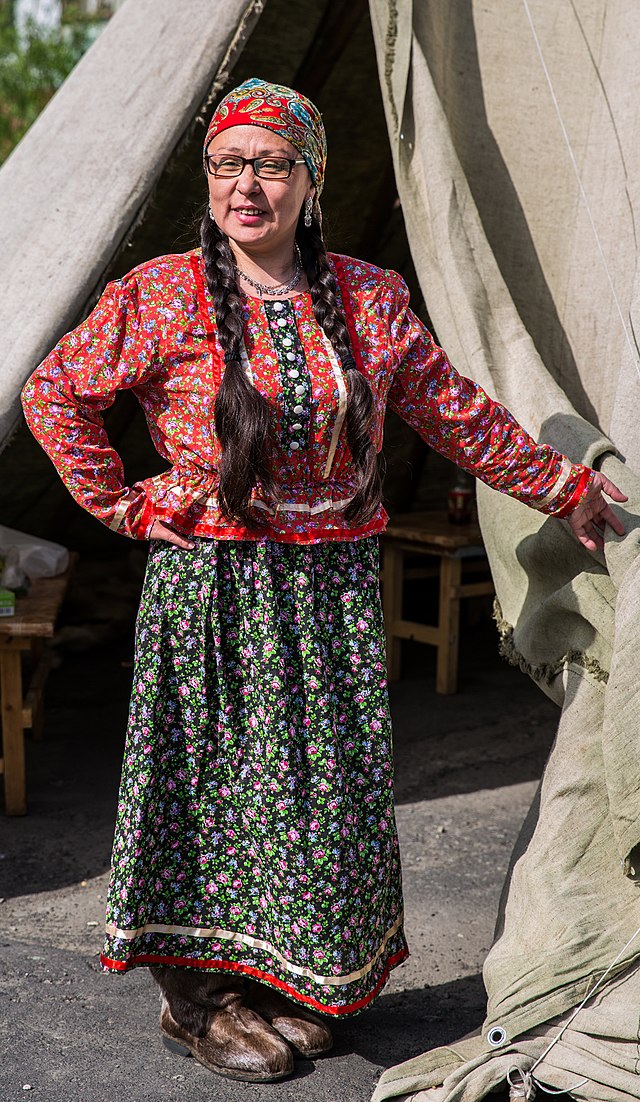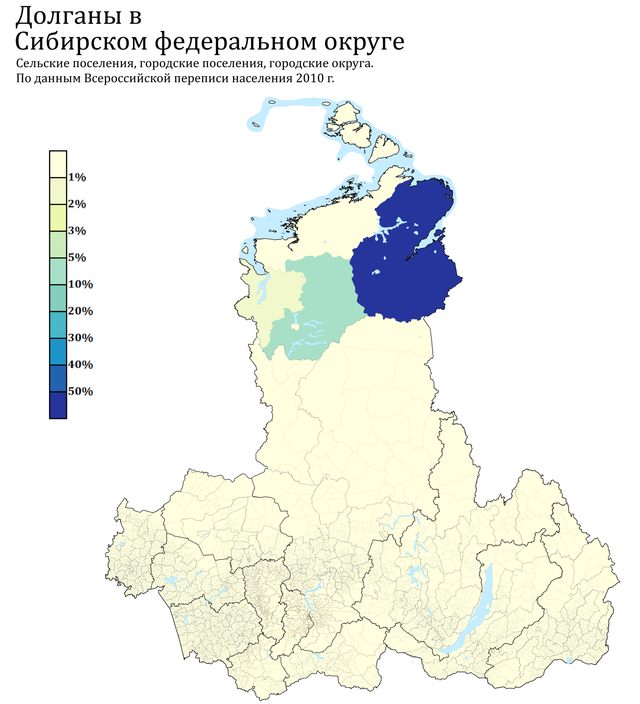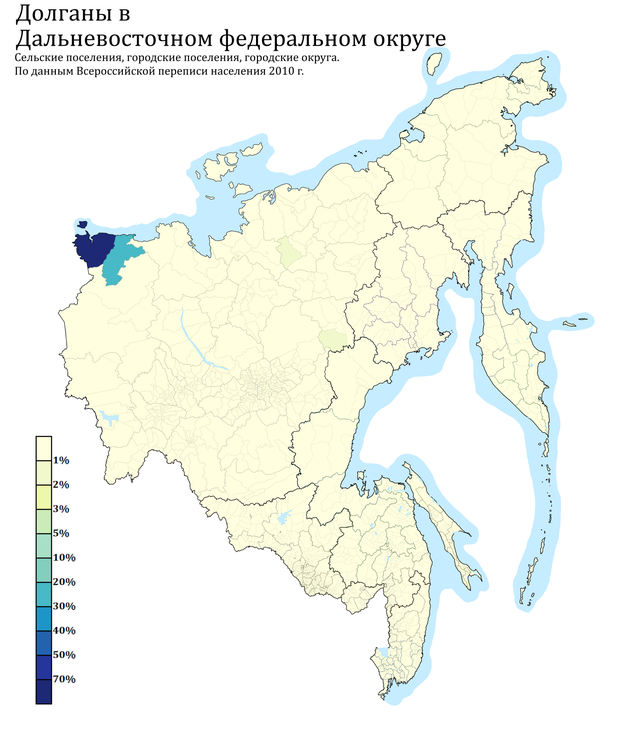Top Qs
Timeline
Chat
Perspective
Dolgans
Turkic ethnic group native to Russia From Wikipedia, the free encyclopedia
Remove ads
Dolgans (Russian: Долганы; Dolgan: долган, дулҕан, Һака, romanized: dolgan, dulğan, haka (Sakha); Yakut: тыа-киһи, romanized: tıa-kihi) are a Turkicized Tungusic ethnic group who mostly inhabit Krasnoyarsk Krai, Russia. They are descended from several groups, particularly Evenks,[2] one of the Indigenous peoples of the Russian North. Dolgans are the most closely related to the Evenks. They adopted a Turkic language sometime in the early 19th century.[2] The 2010 Census counted 7,885 Dolgans. This number includes 5,517 in Taymyrsky Dolgano-Nenetsky District.

Dolgan speak the Dolgan language,[3] which is closely related to the Yakut language.[2]



Remove ads
History
In the 17th century, the Dolgans lived in the basins of the Olenyok River and Lena River. They moved to their current location, Taymyr, in the 18th century.[4] The Dolgan identity began to emerge during the 19th and early 20th centuries, under the influence of three groups who migrated to the Krasnoyarsk area from the Lena River and Olenyok River region: Evenks, Yakuts, Enets, and so-called tundra peasants (зату́ндренные крестья́не, zatúndrennye krest’jáne).
Remove ads
Culture and livelihood
Originally, the Dolgans were nomadic hunters and reindeer herders. However, they were prevented from following a nomadic lifestyle during the Soviet era and required to form kolkhozy (rural collectives) that – in addition to their traditional activities – engaged in reindeer breeding, fishing, dairy farming and market gardening. In 1983, the anthropologist Shirin Akiner claimed: "Dolgans enjoy full Soviet citizenship. They are found in all occupations, though the majority are peasants and collective farm workers. Their standard of housing is comparable to that of other national groups in the Soviet Union."[4]
Remove ads
Religion
Most Dolgans practice old shamanistic beliefs; however, most are influenced by Eastern Orthodox Christianity.
Notable Dolgans
- Ogdo Aksyonova – a poet, the founder of Dolgan literature
References
Wikiwand - on
Seamless Wikipedia browsing. On steroids.
Remove ads
